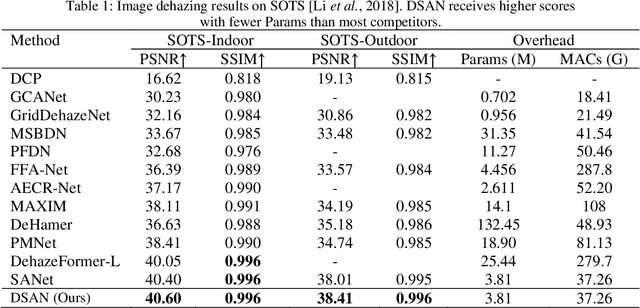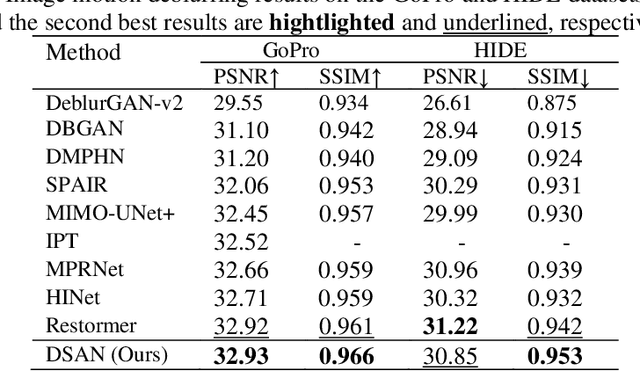Yinjie Wang
RLAnything: Forge Environment, Policy, and Reward Model in Completely Dynamic RL System
Feb 02, 2026Abstract:We propose RLAnything, a reinforcement learning framework that dynamically forges environment, policy, and reward models through closed-loop optimization, amplifying learning signals and strengthening the overall RL system for any LLM or agentic scenarios. Specifically, the policy is trained with integrated feedback from step-wise and outcome signals, while the reward model is jointly optimized via consistency feedback, which in turn further improves policy training. Moreover, our theory-motivated automatic environment adaptation improves training for both the reward and policy models by leveraging critic feedback from each, enabling learning from experience. Empirically, each added component consistently improves the overall system, and RLAnything yields substantial gains across various representative LLM and agentic tasks, boosting Qwen3-VL-8B-Thinking by 9.1% on OSWorld and Qwen2.5-7B-Instruct by 18.7% and 11.9% on AlfWorld and LiveBench, respectively. We also that optimized reward-model signals outperform outcomes that rely on human labels. Code: https://github.com/Gen-Verse/Open-AgentRL
GenEnv: Difficulty-Aligned Co-Evolution Between LLM Agents and Environment Simulators
Dec 23, 2025Abstract:Training capable Large Language Model (LLM) agents is critically bottlenecked by the high cost and static nature of real-world interaction data. We address this by introducing GenEnv, a framework that establishes a difficulty-aligned co-evolutionary game between an agent and a scalable, generative environment simulator. Unlike traditional methods that evolve models on static datasets, GenEnv instantiates a dataevolving: the simulator acts as a dynamic curriculum policy, continuously generating tasks specifically tailored to the agent's ``zone of proximal development''. This process is guided by a simple but effective $α$-Curriculum Reward, which aligns task difficulty with the agent's current capabilities. We evaluate GenEnv on five benchmarks, including API-Bank, ALFWorld, BFCL, Bamboogle, and TravelPlanner. Across these tasks, GenEnv improves agent performance by up to \textbf{+40.3\%} over 7B baselines and matches or exceeds the average performance of larger models. Compared to Gemini 2.5 Pro-based offline data augmentation, GenEnv achieves better performance while using 3.3$\times$ less data. By shifting from static supervision to adaptive simulation, GenEnv provides a data-efficient pathway for scaling agent capabilities.
MMaDA-Parallel: Multimodal Large Diffusion Language Models for Thinking-Aware Editing and Generation
Nov 18, 2025Abstract:While thinking-aware generation aims to improve performance on complex tasks, we identify a critical failure mode where existing sequential, autoregressive approaches can paradoxically degrade performance due to error propagation. To systematically analyze this issue, we propose ParaBench, a new benchmark designed to evaluate both text and image output modalities. Our analysis using ParaBench reveals that this performance degradation is strongly correlated with poor alignment between the generated reasoning and the final image. To resolve this, we propose a parallel multimodal diffusion framework, MMaDA-Parallel, that enables continuous, bidirectional interaction between text and images throughout the entire denoising trajectory. MMaDA-Parallel is trained with supervised finetuning and then further optimized by Parallel Reinforcement Learning (ParaRL), a novel strategy that applies semantic rewards along the trajectory to enforce cross-modal consistency. Experiments validate that our model significantly improves cross-modal alignment and semantic consistency, achieving a 6.9\% improvement in Output Alignment on ParaBench compared to the state-of-the-art model, Bagel, establishing a more robust paradigm for thinking-aware image synthesis. Our code is open-sourced at https://github.com/tyfeld/MMaDA-Parallel
Revolutionizing Reinforcement Learning Framework for Diffusion Large Language Models
Sep 08, 2025Abstract:We propose TraceRL, a trajectory-aware reinforcement learning framework for diffusion language models (DLMs) that incorporates preferred inference trajectory into post-training, and is applicable across different architectures. Equipped with a diffusion-based value model that enhances training stability, we demonstrate improved reasoning performance on complex math and coding tasks. Besides, it can also be applied to adapt block-specific models to larger blocks, which improves sampling flexibility. Employing TraceRL, we derive a series of state-of-the-art diffusion language models, namely TraDo. Although smaller than 7B-scale AR models, TraDo-4B-Instruct still consistently outperforms them across complex math reasoning tasks. TraDo-8B-Instruct achieves relative accuracy improvements of 6.1% over Qwen2.5-7B-Instruct and 51.3% over Llama3.1-8B-Instruct on mathematical reasoning benchmarks. Through curriculum learning, we also derive the first long-CoT DLM, outperforming Qwen2.5-7B-Instruct on MATH500 with an 18.1% relative accuracy gain. To facilitate reproducible research and practical applications, we release a comprehensive open-source framework for building, training, and deploying diffusion LLMs across diverse architectures. The framework integrates accelerated KV-cache techniques and inference engines for both inference and reinforcement learning, and includes implementations of various supervised fine-tuning and RL methods for mathematics, coding, and general tasks. Code and Models: https://github.com/Gen-Verse/dLLM-RL
ScoreFlow: Mastering LLM Agent Workflows via Score-based Preference Optimization
Feb 06, 2025Abstract:Recent research has leveraged large language model multi-agent systems for complex problem-solving while trying to reduce the manual effort required to build them, driving the development of automated agent workflow optimization methods. However, existing methods remain inflexible due to representational limitations, a lack of adaptability, and poor scalability when relying on discrete optimization techniques. We address these challenges with ScoreFlow, a simple yet high-performance framework that leverages efficient gradient-based optimization in a continuous space. ScoreFlow incorporates Score-DPO, a novel variant of the direct preference optimization method that accounts for quantitative feedback. Across six benchmarks spanning question answering, coding, and mathematical reasoning, ScoreFlow achieves an 8.2% improvement over existing baselines. Moreover, it empowers smaller models to outperform larger ones with lower inference costs. Project: https://github.com/Gen-Verse/ScoreFlow
Dilated Strip Attention Network for Image Restoration
Jul 26, 2024



Abstract:Image restoration is a long-standing task that seeks to recover the latent sharp image from its deteriorated counterpart. Due to the robust capacity of self-attention to capture long-range dependencies, transformer-based methods or some attention-based convolutional neural networks have demonstrated promising results on many image restoration tasks in recent years. However, existing attention modules encounters limited receptive fields or abundant parameters. In order to integrate contextual information more effectively and efficiently, in this paper, we propose a dilated strip attention network (DSAN) for image restoration. Specifically, to gather more contextual information for each pixel from its neighboring pixels in the same row or column, a dilated strip attention (DSA) mechanism is elaborately proposed. By employing the DSA operation horizontally and vertically, each location can harvest the contextual information from a much wider region. In addition, we utilize multi-scale receptive fields across different feature groups in DSA to improve representation learning. Extensive experiments show that our DSAN outperforms state-of-the-art algorithms on several image restoration tasks.
 Add to Chrome
Add to Chrome Add to Firefox
Add to Firefox Add to Edge
Add to Edge